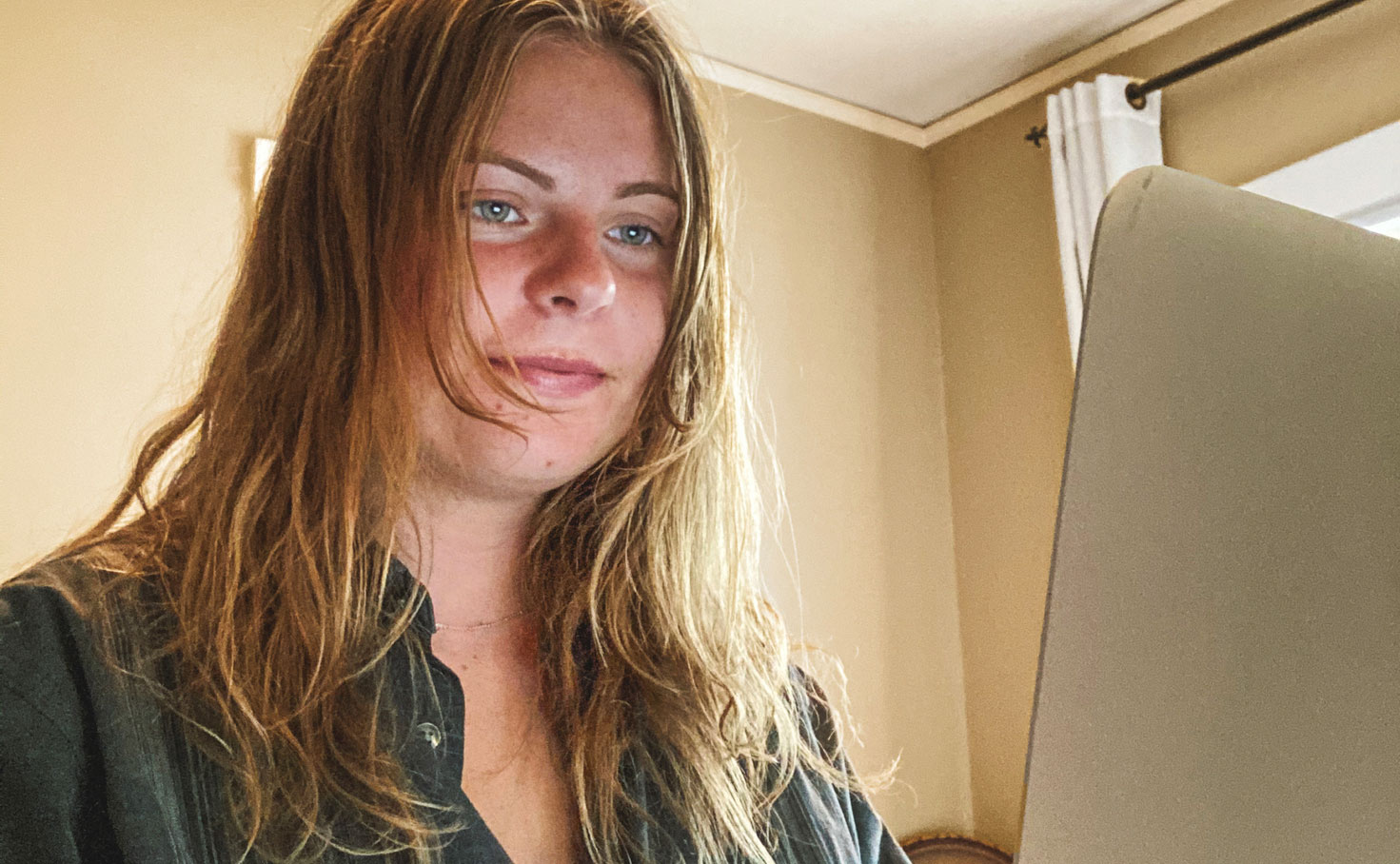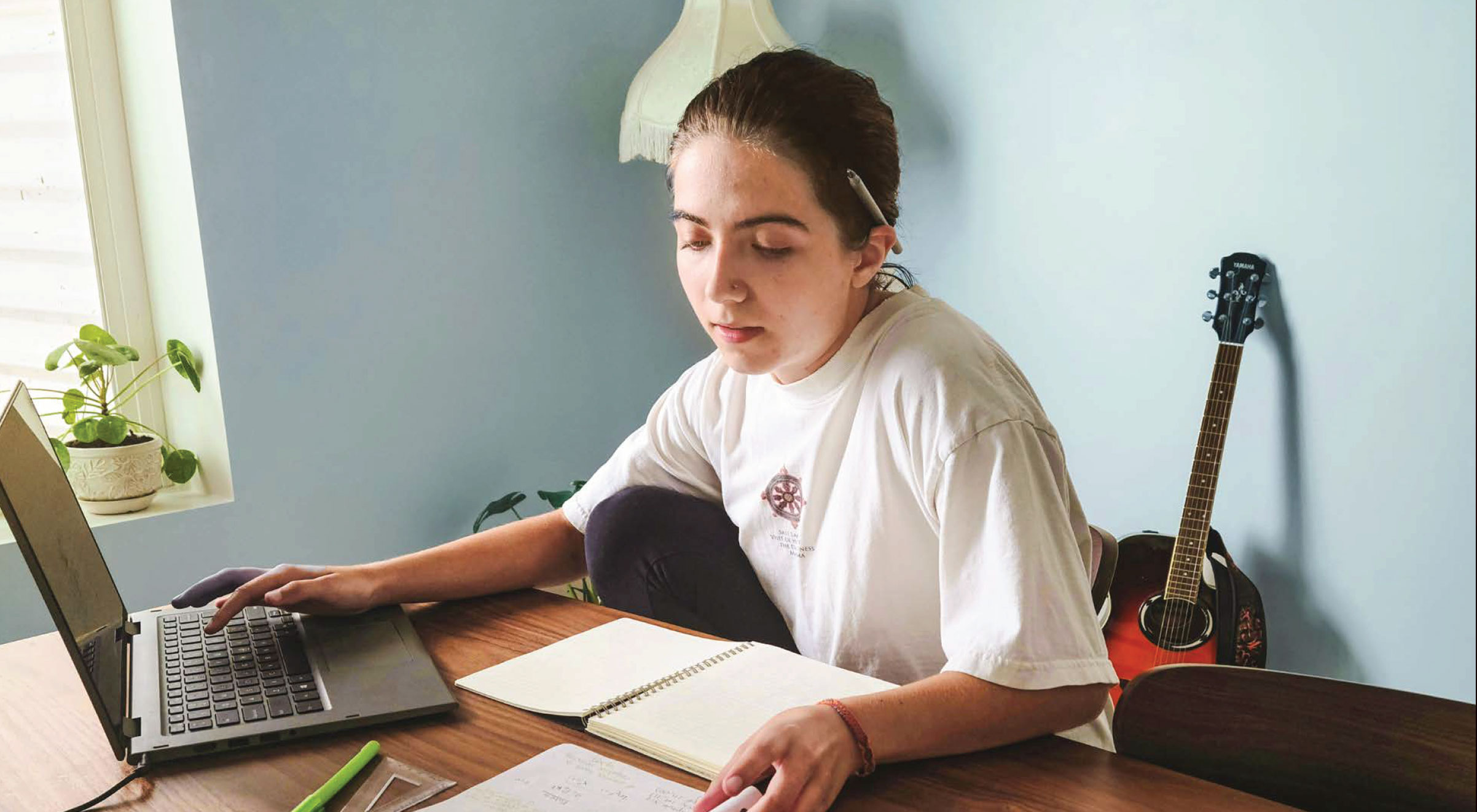Humanities Scholars Reflect on the Impact of COVID-19
Throughout the 2019-20 academic year, the Humanities Scholars—a first-year learning
community—studied High Impact Practices, referred to as HIPs, which are a set of educational
activities such as intensive writing, collaborative projects, internships and research
and service-based learning. HIPs have been shown to have a positive correlation with
student success measures such as GPA, retention, and completion. As part of this learning,
students were required to study and engage in various HIPs such as an alternative
spring break (which supports nonprofit organizations and community-identified projects)
to give them hands-on experience. However, in March 2020, all spring break trips were
canceled, campus was closed, and all classes transitioned to an online format due
to the global COVID-19 pandemic.
The Humanities Scholars were left wondering how they were going to complete not
only their high impact practice projects, but also their regular school work virtually.
The scholars describe what the transition was like, how it impacted their education,
and how they coped and thrived despite the setbacks.

Andee Mazurowski:
“Due to the COVID-19 pandemic, the HIPs I studied were nearly inaccessible. Studying abroad programs were cut short this year and canceled for the summer. Although the experience was no longer available, we could find many resources online to learn about other cultures, including simply reading the news to learn about what is going on in other countries regarding the pandemic. Service-learning opportunities such as alternative breaks were canceled as well as for the summer. Although the trips were gone, the need for service increased in our own communities. In my own community, many people were making homemade masks, donating to food shelters, and helping others online.”
Peter Mannebach:
“The biggest thing COVID-19 affected for me was my ability to be in a specific environment. As an average student, I did really well in specific environments that directly influenced my school work, such as the lecture hall for class or the library for studying. Without these specific environments, I found myself lacking motivation, which made it hard to stay on track. The virus also forced me to prioritize financial issues rather than academics, which caused a slippery slide of missed assignments and lack of communication in classes I would normally be thriving in. Because of all this, I wasn’t in my normal routine and didn’t really have a chance to prioritize my studying and self-betterment.”
Jacob Waters:
“For college students, COVID-19 turned the semester upside down and we still do not know the impact it will have for the rest of our college experience. What we can see clearly is that COVID-19 has destroyed most college students' abilities to participate in HIPs. Luckily, we got a majority of our first year under our belts before it began so we got to participate in seminars and experiences. When it comes to internships and undergraduate research, many students were not able to continue them because businesses, offices and research labs were closed due to the rapid growth of COVID-19. Collaborative projects were still possible, but they reached a whole new level of difficulty due to being virtual. HIPs such as writing intensive courses, ePortfolios, and common intellectual experiences were not interrupted by COVID-19 in a dramatic way. If anything, it was the perfect time to do some writing and finally put together that ePortfolio we had all pushed to the side. In the grand scheme of things, I would say that COVID-19 put a damper on HIPs, but it is not a worry because soon people will be back in college with a new appreciation for all we have and will be more likely to use the resources at our fingertips.”
Sophie Gardner:
“I missed having in-person class and discussions. My only class that used Zoom was Humanities Scholars and I really enjoyed seeing everyone and connecting more in that class than my other classes that used recorded lectures or written lectures. Some of my classes were using discussions in Canvas, which has made it a little easier to interact. Although I’m sad because my New University Scholars meetings had been canceled, I did get to talk to my academic advisor over the phone about my class schedules for summer and fall semesters to make sure I was on track to graduate and get some course suggestions.”
Makayla Patrick:
“Going from one online class to an entire schedule of online classes was a challenge. Being at home with little to do convinced my brain that I was on a summer schedule. I had a hard time waking up to alarms and sticking to a routine. Having the Humanities Scholars as a Zoom class helped me keep a schedule. Most of my classes had recorded lectures, so it became harder to do the work as if I was still going to the lectures every week. Having at least one class that met virtually made it seem as if school was still occurring, despite my brain's intentions to convince me that it was the middle of summer.”

Humanities Scholars Reflect on the Impact of COVID-19
Throughout the 2019-20 academic year, the Humanities Scholars—a first-year learning
community—studied High Impact Practices, referred to as HIPs, which are a set of educational
activities such as intensive writing, collaborative projects, internships and research
and service-based learning. HIPs have been shown to have a positive correlation with
student success measures such as GPA, retention, and completion. As part of this learning,
students were required to study and engage in various HIPs such as an alternative
spring break (which supports nonprofit organizations and community-identified projects)
to give them hands-on experience. However, in March 2020, all spring break trips were
canceled, campus was closed, and all classes transitioned to an online format due
to the global COVID-19 pandemic.
The Humanities Scholars were left wondering how they were going to complete not
only their high impact practice projects, but also their regular school work virtually.
The scholars describe what the transition was like, how it impacted their education,
and how they coped and thrived despite the setbacks.

Andee Mazurowski:
“Due to the COVID-19 pandemic, the HIPs I studied were nearly inaccessible. Studying abroad programs were cut short this year and canceled for the summer. Although the experience was no longer available, we could find many resources online to learn about other cultures, including simply reading the news to learn about what is going on in other countries regarding the pandemic. Service-learning opportunities such as alternative breaks were canceled as well as for the summer. Although the trips were gone, the need for service increased in our own communities. In my own community, many people were making homemade masks, donating to food shelters, and helping others online.”
Jacob Waters:
“For college students, COVID-19 turned the semester upside down and we still do not know the impact it will have for the rest of our college experience. What we can see clearly is that COVID-19 has destroyed most college students' abilities to participate in HIPs. Luckily, we got a majority of our first year under our belts before it began so we got to participate in seminars and experiences. When it comes to internships and undergraduate research, many students were not able to continue them because businesses, offices and research labs were closed due to the rapid growth of COVID-19. Collaborative projects were still possible, but they reached a whole new level of difficulty due to being virtual. HIPs such as writing intensive courses, ePortfolios, and common intellectual experiences were not interrupted by COVID-19 in a dramatic way. If anything, it was the perfect time to do some writing and finally put together that ePortfolio we had all pushed to the side. In the grand scheme of things, I would say that COVID-19 put a damper on HIPs, but it is not a worry because soon people will be back in college with a new appreciation for all we have and will be more likely to use the resources at our fingertips.”
Peter Mannebach:
“The biggest thing COVID-19 affected for me was my ability to be in a specific environment. As an average student, I did really well in specific environments that directly influenced my school work, such as the lecture hall for class or the library for studying. Without these specific environments, I found myself lacking motivation, which made it hard to stay on track. The virus also forced me to prioritize financial issues rather than academics, which caused a slippery slide of missed assignments and lack of communication in classes I would normally be thriving in. Because of all this, I wasn’t in my normal routine and didn’t really have a chance to prioritize my studying and self-betterment.”
Sophie Gardner:
“I missed having in-person class and discussions. My only class that used Zoom was Humanities Scholars and I really enjoyed seeing everyone and connecting more in that class than my other classes that used recorded lectures or written lectures. Some of my classes were using discussions in Canvas, which has made it a little easier to interact. Although I’m sad because my New University Scholars meetings had been canceled, I did get to talk to my academic advisor over the phone about my class schedules for summer and fall semesters to make sure I was on track to graduate and get some course suggestions.”

Makayla Patrick:
“Going from one online class to an entire schedule of online classes was a challenge. Being at home with little to do convinced my brain that I was on a summer schedule. I had a hard time waking up to alarms and sticking to a routine. Having the Humanities Scholars as a Zoom class helped me keep a schedule. Most of my classes had recorded lectures, so it became harder to do the work as if I was still going to the lectures every week. Having at least one class that met virtually made it seem as if school was still occurring, despite my brain's intentions to convince me that it was the middle of summer.”
